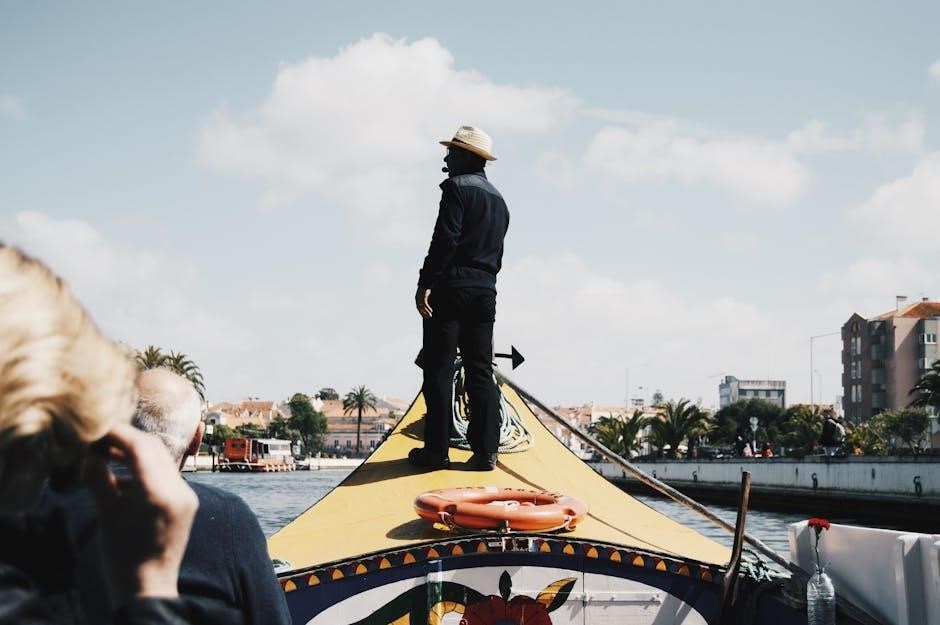Filipina tour guides are known for their warm hospitality and deep knowledge of Philippine culture, history, and destinations. They ensure unforgettable experiences, blending local insights with genuine care.
1.1 Who Are Filipina Tour Guides?
Filipina tour guides are individuals who share their deep knowledge of the Philippines’ rich culture, history, and natural beauty. These guides are passionate ambassadors, often with extensive local expertise, ensuring tourists experience authentic adventures. They are skilled communicators, adaptable to diverse groups, and dedicated to delivering memorable journeys. Many have formal training in tourism, languages, and cultural preservation. Their role extends beyond providing information; they create meaningful connections between visitors and the local community. Filipina tour guides embody the nation’s hospitality, making them integral to the tourism industry’s success and cultural exchange.
1.2 The Role of Tour Guides in Philippine Tourism
Filipina tour guides play a vital role in shaping the Philippine tourism industry by providing enriching experiences for visitors. They act as cultural ambassadors, sharing insights into the country’s history, traditions, and natural wonders. Their expertise enhances tourists’ understanding and appreciation of local heritage, fostering deeper connections. Beyond providing information, they ensure safety, manage logistics, and cater to diverse needs, making their role indispensable. By preserving and promoting Philippine culture, tour guides contribute significantly to the growth and sustainability of tourism, making the Philippines a memorable destination for global travelers.
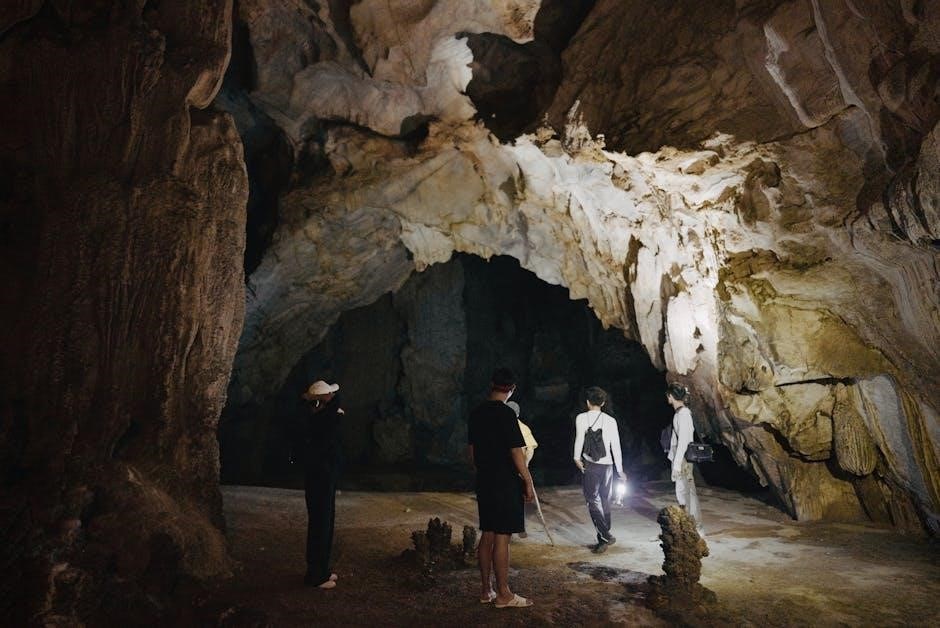
Characteristics of Effective Filipina Tour Guides
Effective Filipina tour guides are known for their hospitality, deep cultural knowledge, and excellent communication skills. They are engaging, adaptable, and genuinely passionate about sharing their country’s heritage.
2.1 Hospitality and Friendliness
Filipina tour guides are renowned for their exceptional hospitality and warm friendliness. Their welcoming smiles and genuine demeanor instantly make tourists feel at ease. By engaging with visitors on a personal level, they create memorable experiences, often going beyond their duties to ensure satisfaction. Their ability to adapt to diverse personalities and preferences allows them to tailor interactions, making each tour feel personalized. This natural hospitality, rooted in Filipino culture, fosters a sense of belonging, turning visitors into lifelong admirers of the Philippines.
2.2 Knowledge of Local Culture and History
Filipina tour guides possess extensive knowledge of the Philippines’ rich cultural heritage and historical landmarks. They share insights into the country’s colonial past, indigenous traditions, and modern developments. Their expertise allows tourists to deeply understand iconic sites like Intramuros, Chocolate Hills, and Tubbataha Reefs. Guides often highlight local festivals, folklore, and artisanal crafts, offering a genuine connection to the Filipino identity. This knowledge not only enhances the tour experience but also fosters appreciation for the Philippines’ diverse cultural tapestry, making each visit memorable and enriching for travelers from around the world.
2.3 Ability to Communicate Effectively
Effective communication is a cornerstone of a Filipina tour guide’s success. They excel at tailoring their delivery to diverse audiences, ensuring clarity and engagement. Whether explaining historical sites or sharing cultural anecdotes, their ability to connect emotionally and intellectually with tourists fosters memorable experiences. Language proficiency and interpersonal skills enable them to bridge cultural gaps, making visitors feel at ease. This adaptability ensures that tours are not only informative but also enjoyable, reflecting the warmth and hospitality the Philippines is known for.
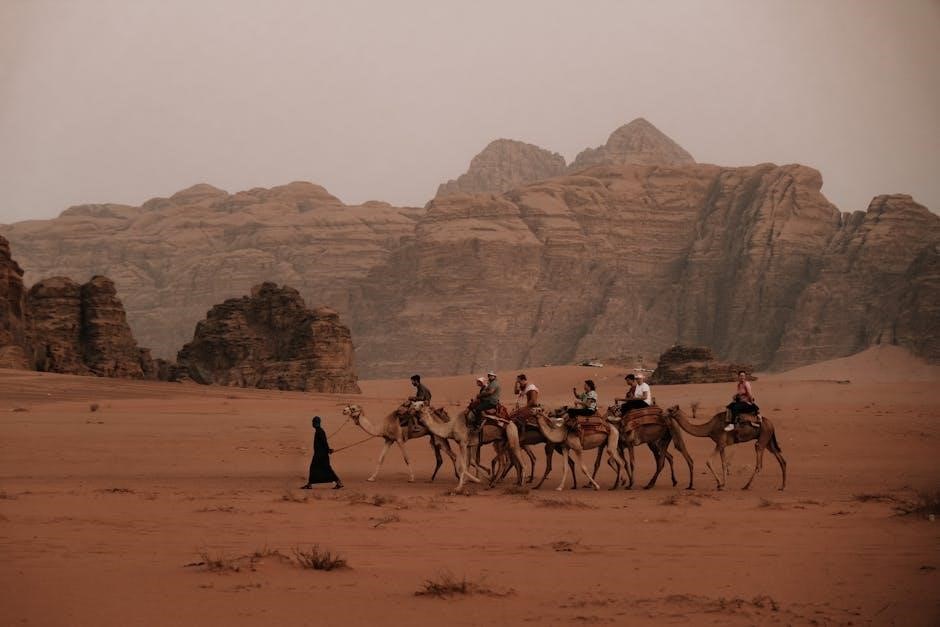
Skills and Training for Filipina Tour Guides
Filipina tour guides undergo training in certifications, language proficiency, and problem-solving to ensure they deliver exceptional, culturally rich experiences tailored to diverse tourist needs and preferences.
3.1 Required Certifications and Licenses
Filipina tour guides must obtain specific certifications and licenses to operate legally. A National Certification for Tour Guides is often required, ensuring they meet professional standards. Additionally, many guides acquire accreditation from the Department of Tourism (DOT), which verifies their expertise. Local governments may also issue permits for guiding in specific regions. These credentials ensure guides have extensive knowledge of history, culture, and safety protocols. Regular renewal of certifications is necessary to stay updated with industry developments. These requirements help maintain high service quality and build trust with tourists.
3.2 Language Proficiency
Language proficiency is a critical skill for Filipina tour guides, enabling effective communication with diverse tourists. Many are fluent in English, the Philippines’ second language, and often learn additional languages like Mandarin, Japanese, or Korean. This proficiency allows them to cater to international visitors seamlessly. Local dialects knowledge also enhances their ability to share regional stories authentically. Strong language skills ensure clear explanations of historical sites, cultural practices, and local customs, making the tour engaging and informative. This adaptability in communication fosters meaningful connections with tourists, enriching their travel experiences in the Philippines.

3.4 Problem-Solving and Adaptability
Filipina tour guides excel in problem-solving and adaptability, crucial traits for managing unpredictable situations. They skillfully handle diverse tourist expectations, ensuring tailored experiences. Whether addressing language barriers or sudden itinerary changes, their quick thinking and resourcefulness shine. Seasonal tourism fluctuations also test their adaptability, as they adjust tour plans to match demand and weather conditions. By understanding their audience and customizing tours, they create memorable journeys. Their ability to think on their feet and remain personable under pressure highlights their professionalism and dedication to delivering exceptional travel experiences.
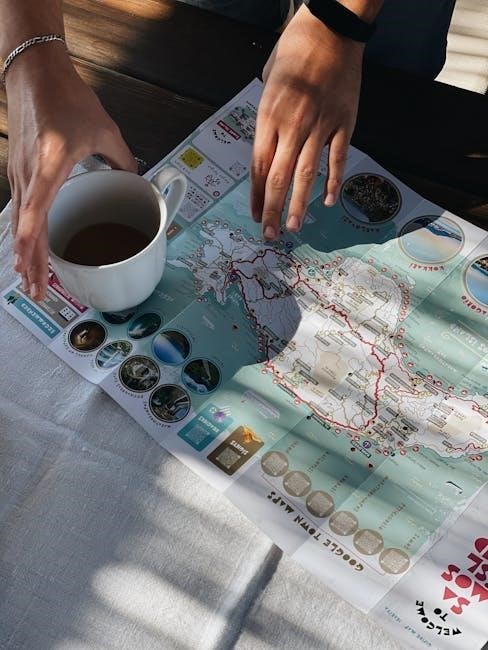
Popular Tourist Destinations in the Philippines
The Philippines boasts iconic destinations like Manila, Cebu, Boracay, and Palawan, each offering unique cultural, historical, and natural wonders that attract global travelers.
4.1 Manila: The Capital City
Manila, the vibrant capital of the Philippines, offers a rich blend of history, culture, and modernity. Filipina tour guides often highlight Intramuros, the historic walled city, showcasing landmarks like Fort Santiago and San Agustin Church. They also introduce tourists to Manila’s cultural gems, such as the National Museum Complex, which houses the country’s artistic and historical treasures. The city’s dynamic energy is evident in its bustling streets, from the scenic Manila Bay sunset to the modern attractions of Bonifacio Global City. With their deep knowledge, Filipina guides bring Manila’s story to life, making every tour memorable and enriching.
4.2 Cebu: A Mix of History and Adventure
Cebu, a vibrant destination, blends rich history with thrilling adventures. Filipina tour guides highlight landmarks like Magellan’s Cross and Basilica del Santo Niño, showcasing the province’s colonial past. Adventure seekers enjoy canyoneering in Badian, diving at Moalboal’s sardine run, or hiking Osmeña Peak. Guides share local legends, making cultural and natural wonders come alive. Their expertise ensures visitors experience Cebu’s diverse offerings, from historical sites to adrenaline-pumping activities, creating unforgettable memories.
4.3 Boracay: Beach Paradise
Boracay, a tropical gem in the Philippines, captivates tourists with its pristine white sands and crystal-clear waters. Filipina tour guides highlight its iconic spots like White Beach and D’Mall, offering insights into its vibrant nightlife and water activities. They often recommend snorkeling, island hopping, and sunset cruises, ensuring unforgettable experiences. Guides also share local secrets, such as hidden coves and secluded beaches, making tours feel personalized. Their knowledge enriches visits, showcasing Boracay as a paradise that blends natural beauty with lively culture, while promoting sustainable tourism practices to preserve its charm for future generations.
4.4 Palawan: Natural Wonders
Palawan is a must-visit destination, famous for its breathtaking landscapes and diverse ecosystems. The stunning El Nido, with its towering limestone cliffs and turquoise lagoons, attracts adventurers and nature lovers alike. The Underground River, a UNESCO World Heritage Site, is another iconic attraction, showcasing the island’s unique biodiversity. Filipina tour guides provide valuable insights into the history and conservation of these natural wonders, enhancing the overall experience for visitors. Their knowledge and passion make Palawan’s beauty even more captivating, offering unforgettable memories for every traveler.

Cultural Experiences Offered by Filipina Tour Guides
Filipina tour guides offer immersive cultural experiences, including traditional festivals, local cuisine tastings, and demonstrations of indigenous crafts, showcasing the Philippines’ rich heritage and vibrant traditions.
5.1 Traditional Filipino Festivals
Filipina tour guides often highlight the vibrant traditional festivals, such as Sinulog and MassKara, showcasing rich cultural heritage. These festivals feature colorful parades, music, and dancing, reflecting local traditions. Guides share stories behind these celebrations, connecting tourists to the community’s spirit. They often invite visitors to join in, creating immersive experiences. Festivals also spotlight local cuisine, crafts, and history, making them a cornerstone of cultural tourism. Filipina guides ensure tourists appreciate these events’ significance, fostering deeper connections to Philippine identity and traditions.
5.2 Local Cuisine and Cooking Demonstrations
Filipina tour guides often introduce visitors to the rich flavors of Philippine cuisine through cooking demonstrations. They showcase iconic dishes like adobo, sinigang, and lechon, sharing recipes and cooking techniques. These interactive sessions allow tourists to engage hands-on, learning about local ingredients and culinary traditions. Guides also highlight the cultural significance of food in Filipino celebrations, making the experience both educational and delightful. Such activities foster a deeper appreciation for the country’s heritage and leave lasting memories for travelers.
5.3 Indigenous Crafts and Art
Filipina tour guides often highlight the country’s rich indigenous crafts and art, showcasing the creativity of local communities. From intricate T’nalak weaving of the T’boli people to the wooden carvings of the Ifugao, these guides provide insight into the cultural significance of such art forms. They often arrange workshops or visits to artisan villages, allowing tourists to witness craftsmanship firsthand. This not only supports local livelihoods but also preserves traditional practices, making the experience both educational and memorable for visitors seeking authentic cultural immersion.
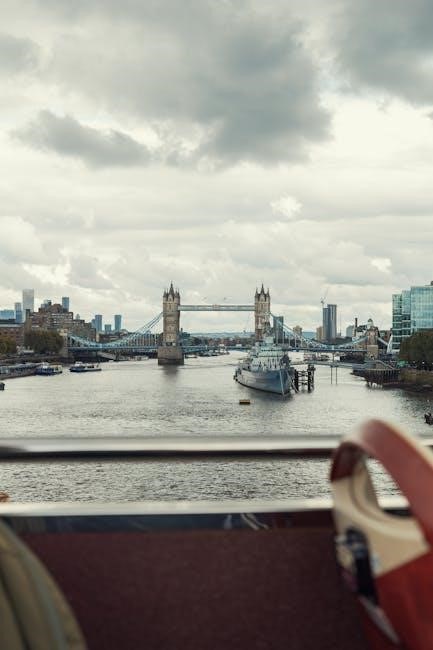
The Role of Filipina Tour Guides in Cultural Preservation
Filipina tour guides play a crucial role in preserving Philippine culture by educating tourists about local customs, traditions, and history, ensuring these are passed down to future generations with passion and dedication.
6.1 Promoting Philippine History
Filipina tour guides play a vital role in promoting Philippine history by sharing stories of the country’s rich cultural heritage. They highlight landmarks like Intramuros and the Barasoain Church, offering insights into the nation’s colonial past and struggle for independence. Through engaging narratives, they bring history to life, connecting tourists to the resilience and diversity of the Filipino people. This not only educates visitors but also fosters pride among locals, ensuring the preservation of historical legacy for future generations.
6.2 Preserving Traditional Practices
Filipina tour guides play a vital role in preserving traditional practices by sharing local customs, festivals, and crafts with tourists. They often incorporate demonstrations of indigenous arts, such as weaving or pottery, into tours. By educating visitors about these practices, they help keep cultural traditions alive. Many guides also engage tourists in hands-on experiences, like participating in folk dances or cooking local dishes. This not only fosters cultural appreciation but also supports local communities. Their efforts ensure that the Philippines’ rich heritage is passed down to future generations, making tourism a tool for cultural sustainability and education.
6.3 Educating Tourists About Local Customs
Filipina tour guides play a vital role in educating tourists about local customs, ensuring a deeper cultural understanding. They explain the significance of traditions like respeto (respect) and bayanihan (solidarity).
By sharing stories and demonstrating practices, they foster cross-cultural appreciation.
This approach helps tourists respect local norms, creating meaningful interactions with communities.
Their efforts bridge cultural gaps, enriching the travel experience while preserving heritage.
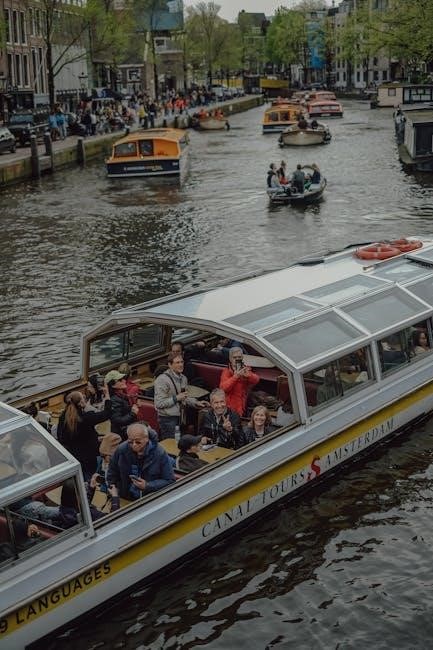
Challenges Faced by Filipina Tour Guides
Filipina tour guides face challenges like language barriers, managing diverse tourist expectations, and adapting to seasonal tourism fluctuations, requiring strong problem-solving and adaptability skills.
7.1 Language Barriers with Foreign Tourists
Language barriers can pose challenges for Filipina tour guides when interacting with foreign tourists. While many guides are proficient in English, some may struggle with other languages. This can lead to misunderstandings or miscommunication, potentially affecting the quality of the tour experience. To address this, many guides use translation tools or learn key phrases in languages like Mandarin, Japanese, or Korean. Despite these efforts, language differences remain a significant hurdle, requiring guides to rely on universal gestures and enthusiasm to connect with visitors effectively.
7.2 Managing Diverse Tourist Expectations
Filipina tour guides excel in managing diverse tourist expectations by tailoring tours to suit different preferences and cultural backgrounds. Their ability to read the audience allows them to customize experiences, ensuring satisfaction for all. Whether catering to adventure seekers or history enthusiasts, they adapt seamlessly, addressing unique needs while maintaining professionalism. This skill is crucial in handling groups with varying interests, ensuring a smooth and enjoyable journey for everyone involved.
7.3 Adapting to Seasonal Tourism Fluctuations
Filipina tour guides face challenges in managing seasonal tourism fluctuations, where visitor numbers surge during peak seasons and drop significantly during off-peak periods. This requires adaptability to maintain consistent service quality. During peak times, guides must handle larger groups and longer tours, ensuring personalized experiences. In off-peak seasons, they often focus on specialized tours or enhance their skills through training. Their resilience and ability to pivot strategies help them thrive despite these fluctuations, showcasing their professionalism and dedication to delivering memorable experiences year-round.
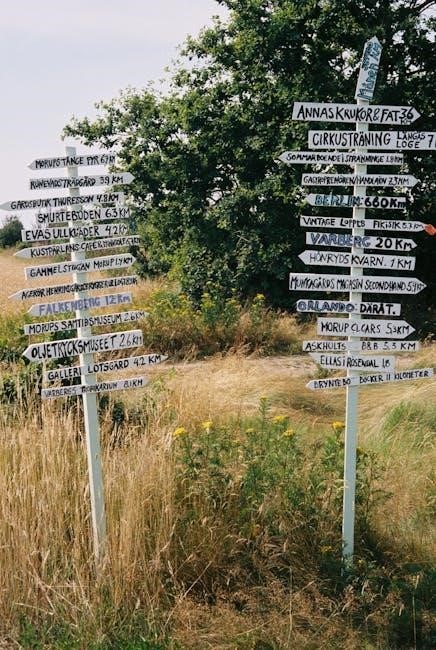
The Future of Filipina Tour Guides in the Industry
The future of Filipina tour guides lies in embracing technology, sustainability, and cultural preservation. They will adapt to global tourism trends while showcasing the Philippines’ unique heritage.
8.1 Impact of Digital Technology on Tour Guiding
Digital technology has revolutionized the tour guiding industry, enabling Filipina tour guides to enhance their services. Tools like GPS and translation apps aid in real-time navigation and communication, breaking language barriers. Virtual tours and augmented reality offer immersive experiences, allowing tourists to explore destinations remotely. Digital platforms also enable personalized itineraries, catering to diverse preferences. Additionally, teleconsultation services and online resources empower guides to provide accurate, up-to-date information. Overall, technology has made tours more accessible, interactive, and tailored to individual needs, ensuring a seamless and memorable experience for travelers.
8.2 Sustainability and Eco-Tourism
Filipina tour guides play a crucial role in promoting sustainability and eco-tourism in the Philippines. By educating tourists about environmental conservation, they help preserve the country’s natural wonders. Many guides advocate for eco-friendly practices, such as reducing plastic use and supporting local communities. Eco-tourism initiatives, like tree-planting activities and wildlife conservation, are increasingly popular. These efforts not only protect the environment but also create sustainable livelihoods for locals. Through their dedication, Filipina tour guides ensure that tourism benefits both people and the planet, fostering a greener future for generations to come.
8.3 Opportunities for International Tours
Filipina tour guides are increasingly exploring opportunities in international tours, leveraging their cultural knowledge and hospitality. With global interest in Asian destinations growing, they can partner with international agencies to promote Philippine culture abroad. Digital platforms and social media enable them to reach global audiences, showcasing the Philippines’ unique heritage. Additionally, sustainability-focused tours align with global trends, offering eco-friendly experiences that attract conscious travelers. By adapting to international standards and embracing technology, Filipina tour guides can expand their reach, fostering cultural exchange and promoting the Philippines as a premier global destination.
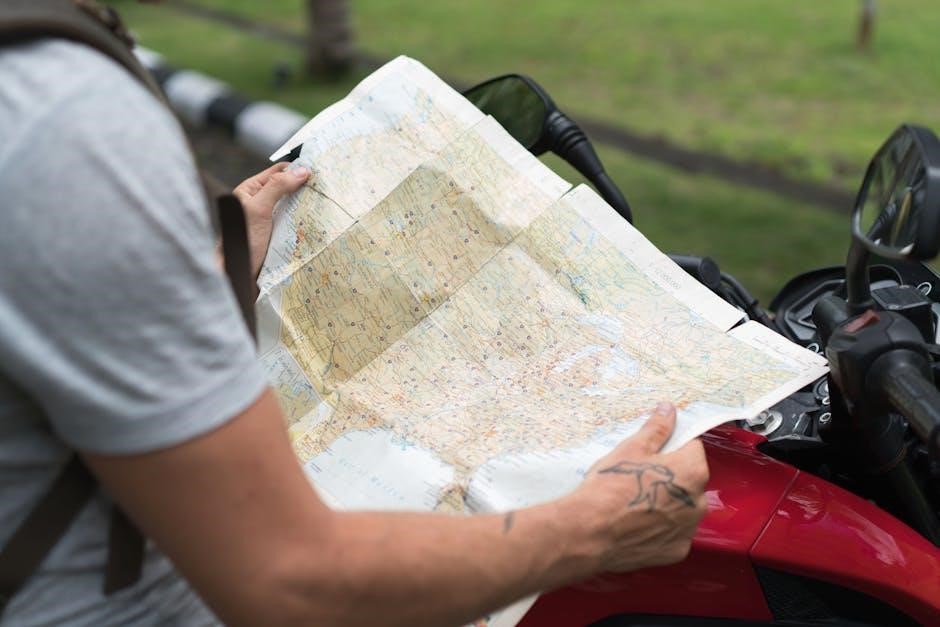
Testimonials from Tourists
Visitors often praise Filipina tour guides for their friendliness, extensive knowledge, and ability to create unforgettable experiences. Many highlight their warmth and dedication to showcasing Philippine culture.
9.1 Positive Feedback About Filipina Tour Guides
Tourists often praise Filipina tour guides for their exceptional hospitality and ability to create memorable experiences. Many highlight their extensive knowledge of local culture, history, and hidden gems. Their warm smiles, engaging storytelling, and genuine care for visitors make tours enjoyable and personalized. Foreign travelers appreciate their fluent English and adaptability, ensuring smooth communication. The guides’ passion for sharing Philippine heritage fosters deeper connections and leaves lasting impressions. Positive reviews frequently mention their professionalism, punctuality, and ability to handle unexpected situations with grace. Such feedback underscores the significant role Filipina tour guides play in enhancing the country’s tourism experience.
9.2 Memorable Experiences Shared by Tourists
Tourists often share heartfelt stories of their experiences with Filipina tour guides, highlighting their warmth and dedication. Many recount how guides went above and beyond, offering insights into local legends or arranging impromptu interactions with locals. Visitors rave about being taken to hidden gems, such as secret waterfalls or family-owned restaurants, which made their trips unforgettable. Others praise guides for their quick thinking, like resolving unexpected issues or translating complex cultural nuances. These personal touches create lifelong memories, leaving tourists with a deeper appreciation for the Philippines and its vibrant culture. Their stories reflect the guides’ ability to make every traveler feel special and valued.
